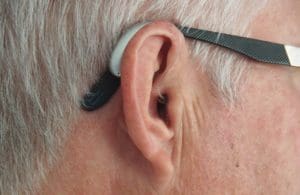
Photo by Mark Paton on Unsplash
Peripheral cytokines from COVID-19 vaccines could cause or exacerbate tinnitus, or ringing in the ears, theorized Shaowen Bao, an associate professor of neuroscience and physiology at the University of Arizona.
Recent articles on Drug Discovery & Development on the possible link between tinnitus and COVID-19 vaccines have attracted hundreds of comments.
Some 0.65% of COVID-19 vaccine recipients who filed reports in CDC’s Vaccine Adverse Event Reporting System (VAERS) reported the issue. Although VAERS is not exhaustive, those 369 reports out of a total of 56,722 VAERS entries represent a tiny fraction of 190 million COVID-19 vaccine doses that have been administered in the U.S. to date.
Six volunteers in J&J’s Phase 3 trial for its COVID-19 vaccine complained of tinnitus. FDA, however, concluded there was insufficient evidence to link the issue to the vaccine.
COVID-19 infections and vaccines summon a strong response and corresponding cytokine release, which, in some individuals, prompt inflammation that could be linked to tinnitus, Bao mused. “People who have a pre-existing condition of hearing loss are more likely affected by COVID or vaccines,” he added.
A study published in the International Journal of Audiology concluded that up to 15% of adults diagnosed with COVID-19 develop some type of hearing problem, including tinnitus.
Another study found that COVID-19 infections exacerbated tinnitus in 40% of people, resulted in no change in 54%, and improved tinnitus in the remainder.
To date, there are no medical literature linking COVID-19 vaccines to tinnitus, although there are a limited number of case reports linking other vaccines to hearing problems.
Bao has researched the role of neuroinflammation in triggering tinnitus after noise-induced hearing loss in rodents. A separate study published in Frontiers in Neuroscience in 2020 concluded that “disease-related increase in brain proinflammatory cytokine release could be a risk factor for noise-induced auditory processing disorder and tinnitus.”
“The paper showed that cytokines and hearing loss synergistically cause impairment in a gap detection test,” Bao said, referring to an audiology-based technique that can test for tinnitus in animals.